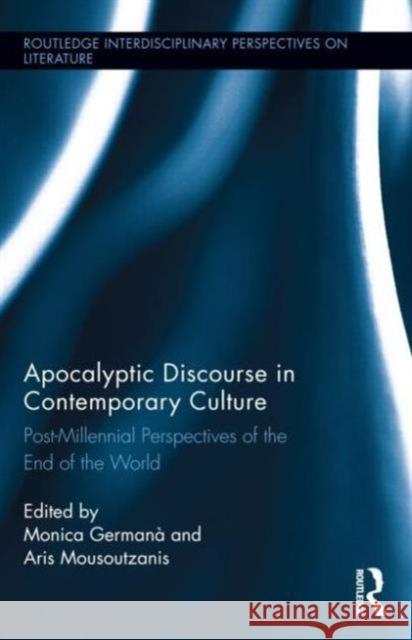Apocalyptic Discourse in Contemporary Culture: Post-Millennial Perspectives on the End of the World » książka
Apocalyptic Discourse in Contemporary Culture: Post-Millennial Perspectives on the End of the World
ISBN-13: 9780415712583 / Angielski / Twarda / 2014 / 260 str.
Apocalyptic Discourse in Contemporary Culture: Post-Millennial Perspectives on the End of the World
ISBN-13: 9780415712583 / Angielski / Twarda / 2014 / 260 str.
(netto: 746,32 VAT: 5%)
Najniższa cena z 30 dni: 705,23
ok. 22 dni roboczych.
Darmowa dostawa!
This interdisciplinary volume focuses on critical and theoretical responses to the apocalypse, reflecting on its past tradition, pervasive present and future legacy. It offers a dynamic combination of theoretical speculation, textual analysis and historicisation, exploring four crucial areas of investigation: theory, space, time, and language. Authors examine how apocalyptic discourses have had an impact on how we read the world's globalised space, the traumatic burden of history, and the mutual relationship between language and eschatological belief. The apocalypse is generally understood as a complex and often paradoxical paradigm of contemporary culture. This book offers a new, post-millennial perspective that perceives 'the end' as immanent rather than imminent, and develops existing theoretical tendencies that approach apocalyptic fictions as fantastic displacements of contemporary social, cultural and political anxieties. It points to the many ways in which the apocalypse is spatialised and mapped across urban, virtual, and global spaces.This collection explores the widespread appeal of the apocalypse as one of the most pervasive preoccupations in the history of Western culture, and one that has served as a template to construct different sets of cultural anxieties throughout history.











